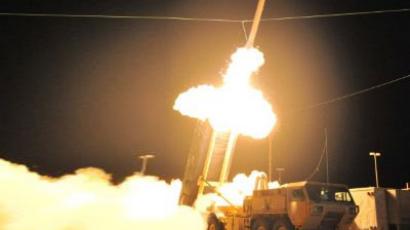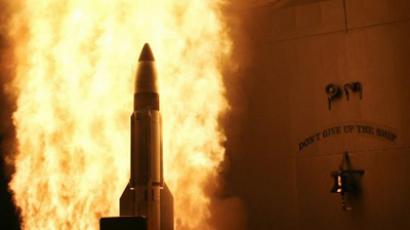Nuke rebuke: China urges ‘drastic’ nuclear cuts from Russia and USA
China is actively pushing the nuclear disarmament process forward, calling for the US and Russia, between them possessing the majority of the world's nuclear warheads, to “make drastic reductions in their nuclear arsenals.”
Even though Russia and the US have already taken concrete steps towards reduction of their nuclear capability, Beijing stressed they still hold the most nuclear arms. The recent US-Russian arms reduction treaty, which came into force in February 2011, requires both states to cut the number of long-range, strategic nuclear weapons to no more than 1,550 on each side within seven years. "As countries with [the] largest nuclear arsenals, the US and Russia should continue to make drastic reductions in their nuclear arsenals in a verifiable and irreversible manner," top Chinese official Cheng Jingye said at a meeting in Vienna on Monday. He also called for all nuclear-armed countries tied by the Non-Proliferation Treaty to “publicly undertake not to seek permanent possession of nuclear weapons.”He said China, Britain and France, the other three recognized nuclear-armed states, should join the “multilateral negotiations on nuclear disarmament.”China is firmly committed to a nuclear strategy of self-defense, and therefore wants to keep nuclear capabilities at the minimum level required for national security.Beijing also says that Washington should not disrupt the global strategic balance by developing missile defense systems.This was a possible reference to Pentagon’s recent revelations of its plans to deploy elements of its global missile defense shield in Asia and the Middle East.A similar antimissile system in Europe is one of stumbling blocks in Russia-US relations. Moscow wants guarantees that European missile shield and nuclear power will not be used against it. The Asian AMD is likely to trouble China for the very same reasons.The ideal scenario, as China sees it, would be a complete nuclear disarmament, but “this is a rather distant scenario,” Professor Joseph Cheng told RT. He believes that in case Russia and the US meet the call from China, his country will also take the same measure. RT: Beijing says other nuclear states should consider disarmament. But China itself has nearly 200 nuclear-capable ballistic missiles, according to some estimates. Will it be prepared to disarm too?Joseph Cheng: At least at this moment, China’s firm position has been that if or when the United States and Russia are prepared to drastically reduce their nuclear arsenals to the level of China, UK and France and so on, then China will be quite happy to join the club and to be involved in the general nuclear arms control and disarmament process, eventually to arrive to the ideal scenario of complete nuclear disarmament. But certainly this is a rather distant scenario and China is enjoying its position on more high grounds at least at this stage. RT: Why is China concerned about America's and Russia's nuclear arsenals?JC: China is probably the Eastern third in terms of nuclear arsenal in comparison to the United States and Russia. It believes if the United States and Russia continue to develop their nuclear arsenals, China will be under pressure to follow suit first by devoting more resources to build its MIRVs – multiple warheads in the continental ballistic missiles – as well as to gradually develop a kind of anti-missile defense system. This will be costly. China is aware of the lessons of the Soviet Union in 1980s when it was forced to compete with the United States in terms of military development. China certainly would like to devote more resources to economic development so as to be able to catch up with the United States in the intermediate term future.














